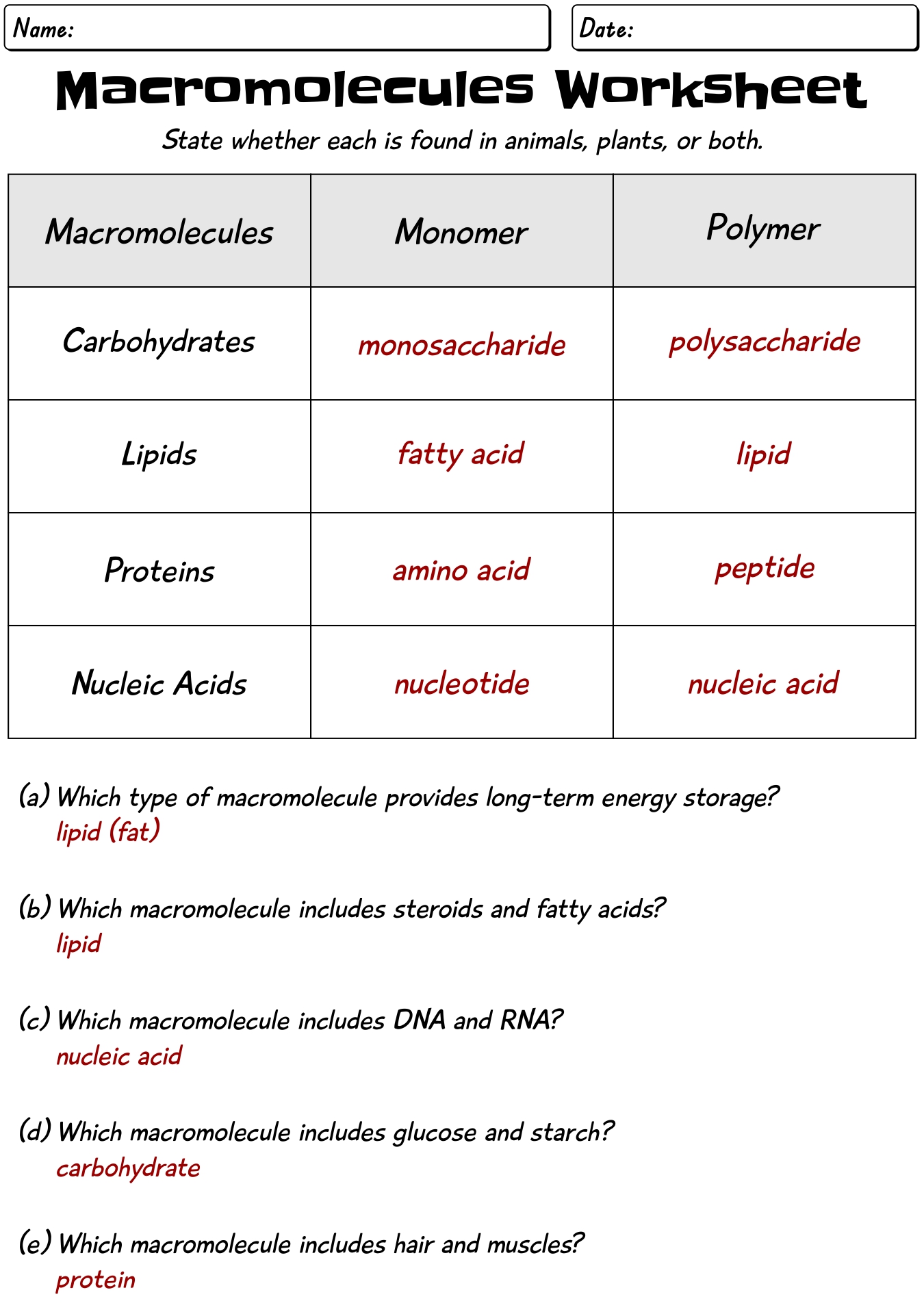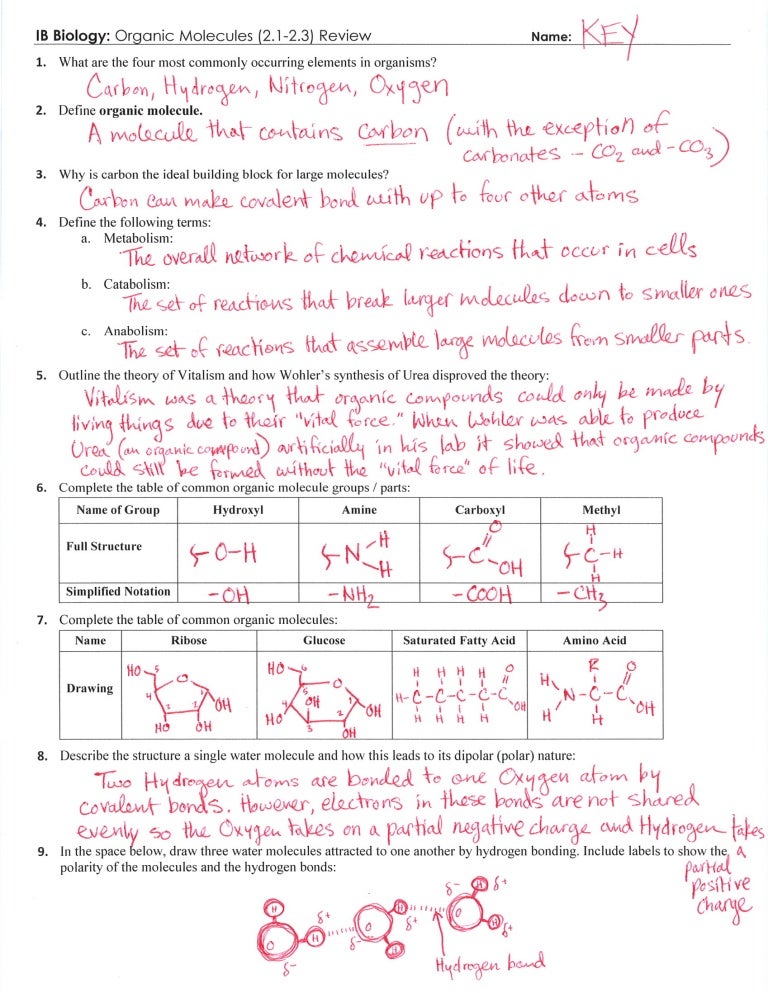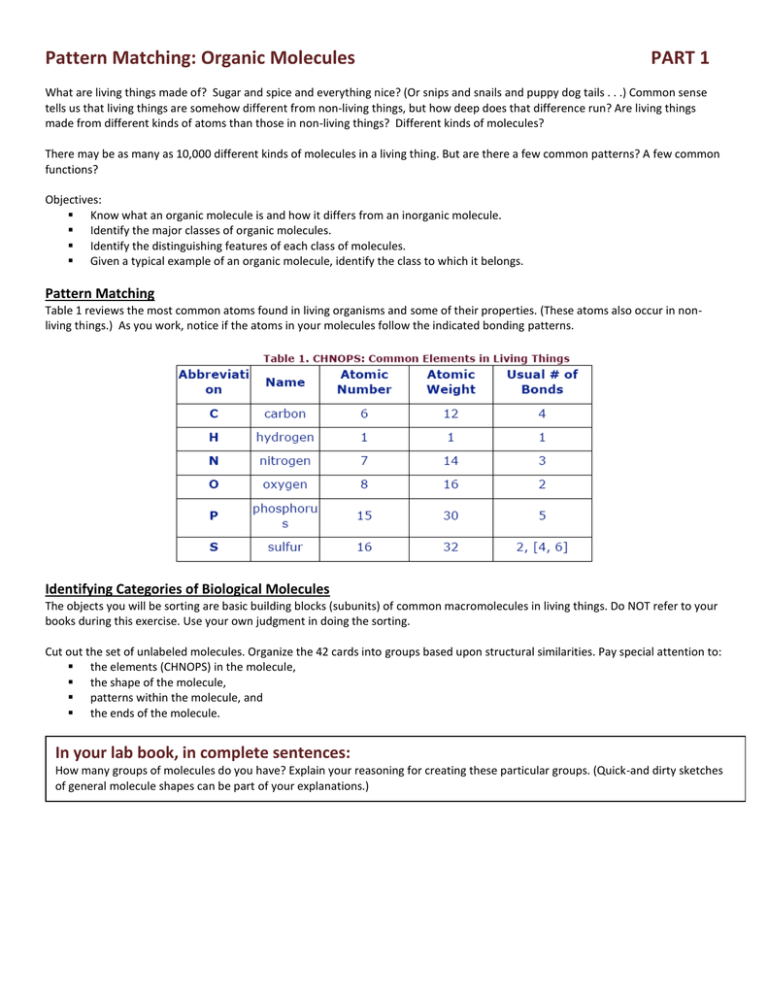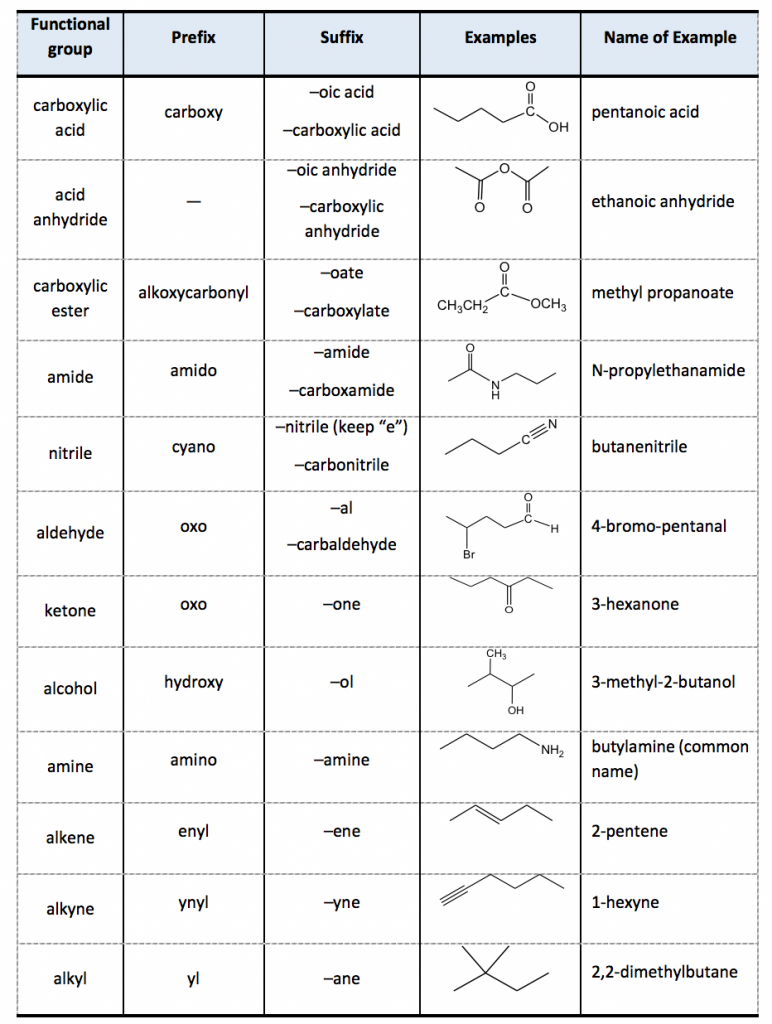Pattern Matching Organic Molecules Answer Key - Study with quizlet and memorize flashcards containing terms like amino acid, steroids, saturated. Classifying organic molecules adapted from kim. Lipids, nucleic acids, proteins, and carbohydrates. Identify the major classes of organic molecules. Organic molecules part 6 group 5: Identify the major classes of organic molecules. Know what an organic molecule is and how it differs from an inorganic molecule. Classifying organic molecules | pdf | nucleotides | carbohydrates. In this activity, you will. You have previously learned about the four classes of large biological molecules:
14 Best Images of Biology Macromolecules Worksheets And Answers
You have previously learned about the four classes of large biological molecules: Know what an organic molecule is and how it differs from an inorganic.
IB Organic Molecules Review Key (2.12.3)
Web given a typical example of an organic molecule, identify the class to which it belongs. You have previously learned about the four classes of.
Fillable Online Pattern matching organic molecules answer key Fax Email
Know what an organic molecule is and how it differs from an inorganic molecule. Study with quizlet and memorize flashcards containing terms like amino acid,.
pattern matching organic molecules answer key understandingaspaladin
You have previously learned about the four classes of large biological molecules: You have previously learned about the four classes of large biological molecules: Lipids,.
2.4 IUPAC Naming of Organic Compounds with Functional Groups
Web given a typical example of an organic molecule, identify the class to which it belongs. Know what an organic molecule is and how it.
Solved Match the organic compound with the functional group
Lipids, nucleic acids, proteins, and carbohydrates. In this activity, you will. Organic molecules what are living things made of? Web macromolecule containing hydrogen, oxygen, nitrogen,.
Biochemistry Pattern Matching I Pattern Matching Organic Molecules
Lipids, nucleic acids, proteins, and carbohydrates. In this activity, you will. Organic molecules part 6 group 5: Identify the major classes of organic molecules. Organic.
Pattern Matching Organic Molecules Answer Key / Organic Molecules
Study with quizlet and memorize flashcards containing terms like amino acid, steroids, saturated. Pattern matching table 1 reviews the most common atoms found in living.
[Solved] Match the correct following with the correct molecules
Study with quizlet and memorize flashcards containing terms like amino acid, steroids, saturated. You have previously learned about the four classes of large biological molecules:.
In This Activity, You Will.
Organic molecules part 6 group 5: Web given a typical example of an organic molecule, identify the class to which it belongs. Web view pattern matching online version key.pdf from science 441020 at charles j colgan sr high school. You have previously learned about the four classes of large biological molecules:
Web Macromolecule Containing Hydrogen, Oxygen, Nitrogen, Carbon, And Phosphorus.
You have previously learned about the four classes of large biological molecules: Pattern matching table 1 reviews the most common atoms found in living organisms. Know what an organic molecule is and how it differs from an inorganic molecule. Classifying organic molecules | pdf | nucleotides | carbohydrates.
Identify The Major Classes Of Organic Molecules.
Organic molecules part 5 group 4: In this activity, you will. You have previously learned about the four classes of large biological. Identify the major classes of organic molecules.
You Have Previously Learned About The Four Classes Of Large Biological Molecules:
Web name date per ap biology / rodgers. Lipids, nucleic acids, proteins, and carbohydrates. Lipids, nucleic acids, proteins, and carbohydrates. Study with quizlet and memorize flashcards containing terms like amino acid, steroids, saturated.








